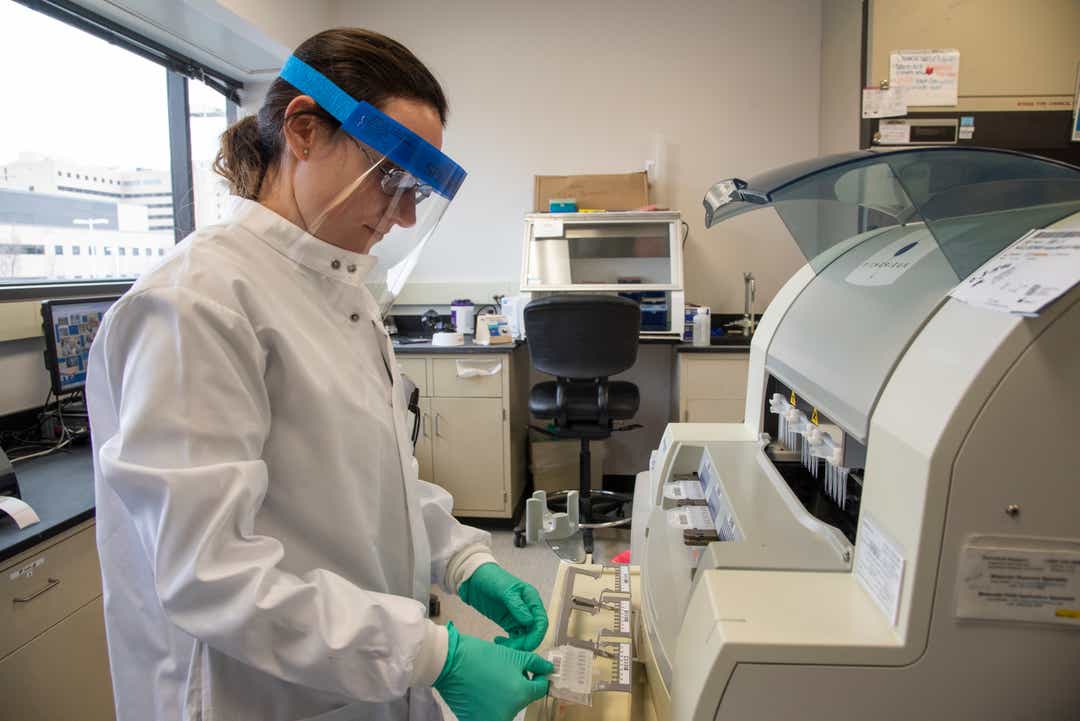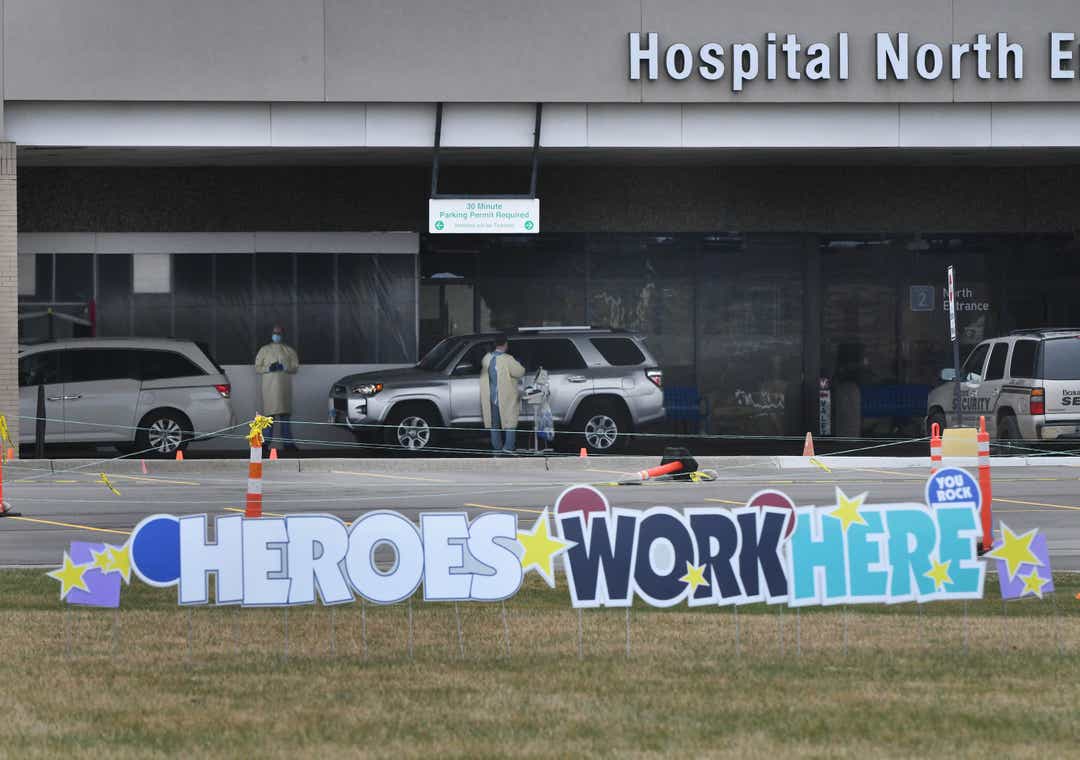A team led by Beaumont Health researchers say they have developed a test to detect COVID-19 through urine, blood or saliva in under an hour.
The most accurate coronavirus tests currently available take up to 24 hours to process. Laura Lamb and co-researcher Michael Chancellor say their samples can be processed in 30-45 minutes.
Results were compared to existing technology and found to be highly accurate, Beaumont officials said Wednesday. The test is relatively inexpensive to develop and operate, they said.
"We need more testing options if we’re going to stage a successful public health response to COVID-19," Lamb said. "This is a rapid test that does not require expensive machinery to run, and the materials for it are relatively inexpensive. The more options we have for testing, the better."

The next phase will be to secure corporate sponsorship to fund development of the tests, which face more hurdles, including obtaining Food and Drug Administration approval and clinical evaluation, the researchers said.
Lamb said they're optimistic the test could be ready for widespread use within a month or so. Should it reach the market, Lamb said it will help gauge how widespread the virus is and allow for easy retesting.
"I think for us to really get a hold of the virus and reduce the number it’s impacting, it will require people being tested over and over again," Lamb said. "People will be at risk more than once, especially people at nursing homes, schools and prisons. It allows us to identify people early (and) quarantine them to limit their exposure.
"That’s the strategy. If we really want to reopen the state, we will need to do massive amounts of testing."
The tests could be useful for COVID-19 screenings in nursing homes, long-term care facilities, cruise ships or school or prison systems, where large groups of people live or gather.
Lamb and Chancellor developed technology for a rapid Zika virus detection test about three years ago. Though the need for that technology faded, Lamb and the team said they swiftly adapted the technology for COVID-19.
“This just shows you how working in one area can jump-start research in another,” Chancellor said.
The detection test, Lamb said, is built on recommendations from Dr. Anthony Fauci, an immunologist and director of the National Institute of Allergy and Infectious Diseases since 1984, that "rapid testing and tracing are the keys to containing the coronavirus."
The study recently appeared in the peer-reviewed medical journal PLOS ONE.
Since publication, more than 10,000 scientists from around the world have downloaded the article. Researchers are collaborating with others from Prague, Africa and South America by video conference to expand their efforts, Beaumont said.
They made the findings available a few months ago and Lamb said researchers across the globe are reproducing the same results.

Testing and re-testing
Lamb is optimistic that the federal government will approve the test while they expedite emergency-use requests.
Accuracy of many coronavirus tests being rushed out remains unknown.
When the new virus began spreading, the FDA used its emergency powers to approve scores of quickly devised tests, based mainly on a small number of lab studies showing they could successfully detect the virus. That's different from large patient studies that can take weeks or months, which experts say are needed to provide a true sense of testing accuracy.
Michigan uses different technology and method than the Beaumont team's new test, which was developed using a polymerase chain reaction (PCR) method to test.
Lamb said the development of the proposed test was never directly compared to the rapid-testing systems used, for example, at the former State Fairgrounds or CVS' rapid testing.
"We created the tests based on the standards and a PCR technique to make sure they were accurate," she said. "Results showed a 95% agreement with the most advanced lab testing ... It's a fairly sensitive test and there were many concerns on the accuracy of others, which is why we compared it to the gold standard of PCR testing."
There was a need for less invasive testing to better understand the virus, Lamb said.
"Not every person will be able to tolerate the nasal swap, which is why we looked at producing an alternative. That being said, the place the virus is found at the highest form of accuracy is in the respiratory tract, so the best way to detect the virus is with the nasal swab."

Michigan's testing plan calls for 2% of the state’s population to be tested, or 465,000 tests, each month. That number will increase to 9% in the fall.
As of Wednesday, the state added 262 cases and four new deaths. The state's total include 64,132 confirmed cases and 6,213 deaths, including 262 unconfirmed cases. As of Friday, 51,099 people have recovered from the virus.
Michigan's Department of Health and Human Services was unfamiliar with the new test and declined to comment on its impact.
The announcement Wednesday joins the ongoing work of many others scientists working to develop tests, said Dr. Duane W. Newton, associate professor of pathology, epidemiology and director of the clinical microbiology lab at the University of Michigan.
"It remains to be seen whether (Beaumont's research) can have an impact on the state's testing, and (it) still has to undergo studies," Newton said. "But it's still good because we need rapid tests that can be performed on something other than a nasopharyngeal swab because sample collection devices are limited."
srahal@detroitnews.com
Twitter: @SarahRahal_
"results" - Google News
July 02, 2020 at 12:56AM
https://ift.tt/38rkQRS
Beaumont develops rapid COVID-19 test with results in 45 minutes - The Detroit News
"results" - Google News
https://ift.tt/2SvRPxx
https://ift.tt/2Wp5bNh
Bagikan Berita Ini















0 Response to "Beaumont develops rapid COVID-19 test with results in 45 minutes - The Detroit News"
Post a Comment